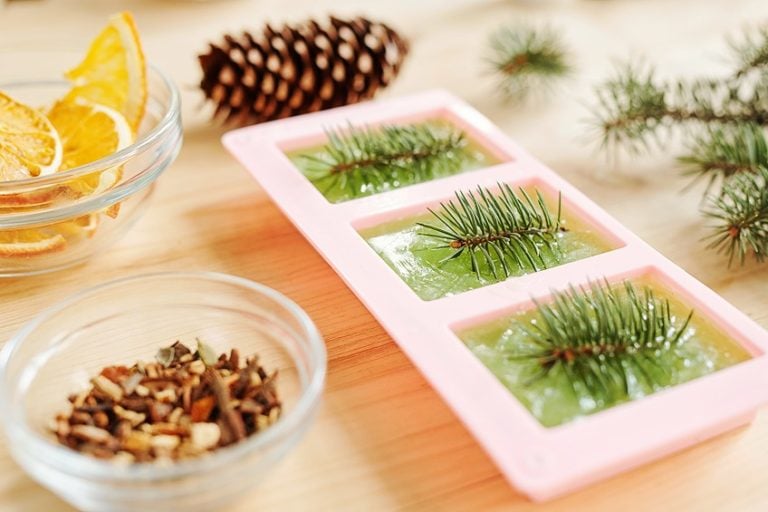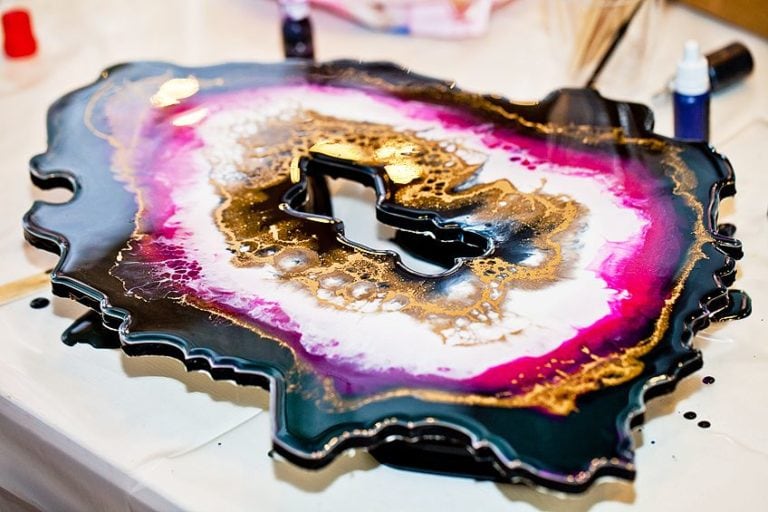Best Concrete Sealer – The Top Concrete Sealant for DIY Projects
This post may contain affiliate links. We may earn a small commission from purchases made through them, at no additional cost to you.
Concrete is hard and durable, great for use in many applications. However, as with most things, it can still be damaged over time. Since concrete is used on things like driveways, patios, pool decks, it handles a lot of stress. Even though it is made to carry heavy loads, it can begin to show signs of deterioration. This is where a concrete sealant comes into the picture. A cement sealer will help to shield the concrete surface from any damaging forces. An added benefit would be a beautiful finish that keeps the concrete surface looking new. Read on to discover the best concrete sealer and the benefits provided.
Table of Contents
- 1 What Is Cement Sealer?
- 2 Types of Cement Sealer
- 3 Why Apply a Concrete Sealant?
- 4 Best Concrete Sealer
- 4.1 Best Concrete Sealer Overall: DRY-TREAT Impregnating Sealer
- 4.2 Best Concrete Sealer for Countertops: ROCKLINITE LABS Tuff Duck Countertop Sealer
- 4.3 Best Versatile Concrete Sealer: ECO ADVANCE Concrete/Masonry Siloxane Water Proofer
- 4.4 Best Affordable Concrete Sealer: ESSENTIAL VALUES Concrete Sealer
- 5 Should All Concrete Be Sealed?
- 6 Choosing the Best Concrete Sealer
- 7 Cement Sealer Application
- 8 Frequently Asked Questions
What Is Cement Sealer?
Cement sealer is made specifically as a finish coat over cement surfaces. Bare concrete floors can last a long time; however, the floor can sustain damage and acquire stains from traffic, chemicals, and other destructive forces and substances. Surface moisture, in itself, can be the biggest problem for concrete floors. Adding a cement sealer to your bare or decorative concrete is the best choice to protect it from any further damage.
A concrete sealant will protect the cement surface from damage, but this can also begin to show signs of damage over time. However, this is a simple fix, apply another cement sealer coat to restore the look and protective layer. There are various concrete sealants available, each offering different finishes and various protective properties. The choice is reliant on what you want to do and the type of cement project you are dealing with.
The best concrete sealer should improve the appearance of the concrete surface and increase durability. Once applied, your surface should look new while retaining and enhancing structural protection.
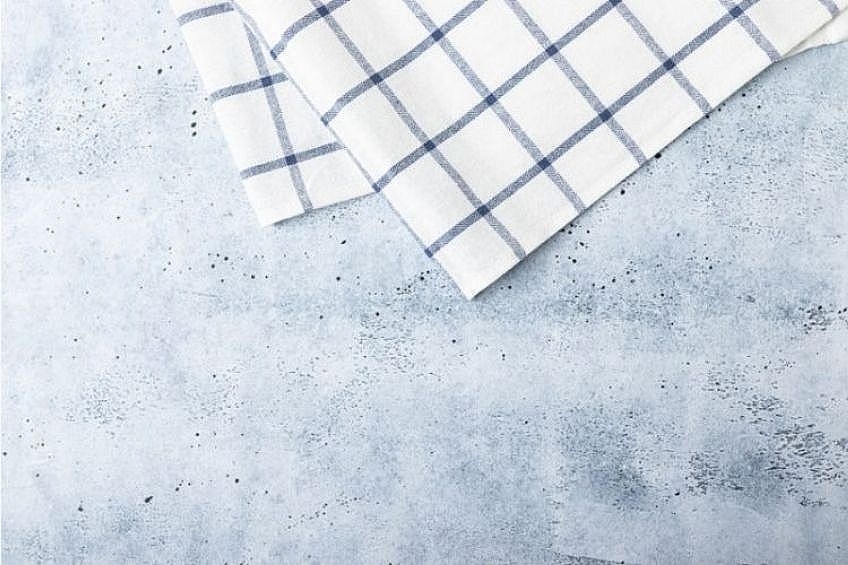
Types of Cement Sealer
If this is your first time looking for the best concrete sealer, you might be confused by the different options available. You have a variety of products, brands, and finishes to choose from. There are two major classifications, and within these are a variety of choices. We will be dealing with a few of these types of cement sealers below. The two main types, and a few other options.
Penetrating Concrete Sealer
The first main option is a penetrating concrete sealer. Since concrete is porous, the surface will absorb liquids and moisture. Much of concrete damage comes from the surface absorbing and retaining water. One of the main purposes of a cement sealer is to prevent this from happening. The penetrating concrete sealer is absorbed by the concrete, there is then a reaction that occurs which blocks the porous cement.
Since penetrating concrete sealer acts the way it does, it is known as a reactive substance. It does not form a visible protective coat and, therefore, does not change the look of the concrete surface. The main purpose of this sealer is to block the pores, which then prevents the absorption of water. The penetrating concrete sealer should last for a few years, at least five years, or maybe even more.
Topical Cement Sealer
Instead of sinking into the concrete, the topical cement sealer forms a layer over the surface. These types of sealers have exceptional adhesion properties and form a barrier over the cement surface. This barrier then protects the concrete surface from moisture, chemicals, and other damaging forces.
The topical application will provide protection but also changes the look of the surface. The sealer will dry to a clear finish and provides a nice shine that gives a new look appearance. You also have a choice of finishes that will affect the appearance of your cement surface. Once the topical cement sealer has thoroughly dried, the surface can be quite slippery, especially when wet. You can remedy this by adding an anti-skid additive to help improve surface traction.
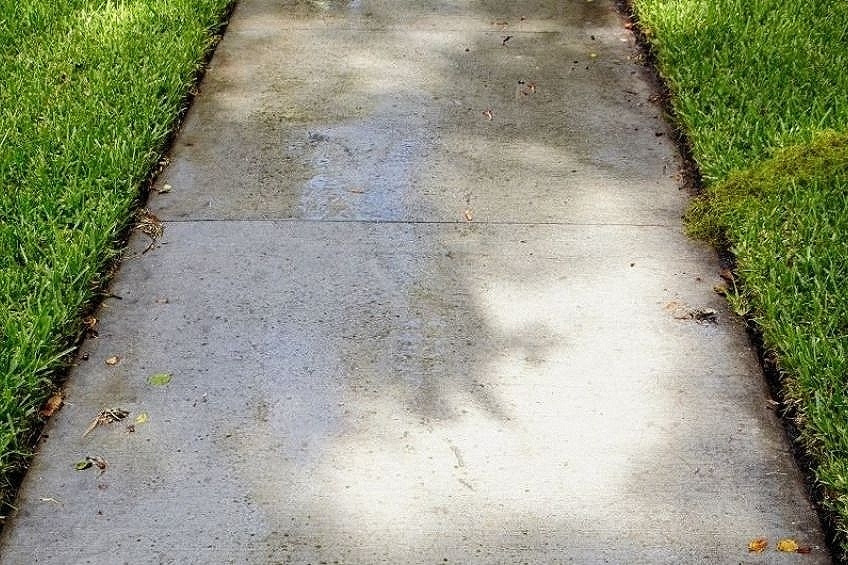
Additional Cement Sealer Types
The above two are the main types of concrete sealants, however, there are other choices available that originate from these two main types. We will be going over some of these options next.
Acrylic Concrete Sealer
An acrylic concrete sealer is an affordable option that is easy to apply and forms a thin protective layer over your concrete surface. An acrylic concrete sealer can either be water-based or can also come as a solvent-based concrete sealer. You also have a variety of sheens available, and the one you select depends on what you want to achieve.
You can use an acrylic concrete sealer on outdoor surfaces, as there are UV protection options available. This product is also great to use as a stamped concrete sealer. This type of sealant is quick-drying and will shield against moisture and salt. As mentioned, you can use it on outdoor surfaces, but the application is thinner and will need to be reapplied. Epoxy and polyurethane sealers tend to last longer than acrylic concrete sealers.
Polyurethane Cement Sealer
This type of concrete sealant forms a thicker coat and provides better protection than the acrylic concrete sealer. Again, this product comes as a solvent-based concrete sealer or water-based and comes in many different sheen options. Polyurethane cement sealers are a good choice for both indoor and outdoor surfaces, as it is durable and will not yellow over time. The clear finish is perfect over countertops as well as floors. You can use it as a stamped concrete sealer and works great over painted concrete and other types of exposed concrete.
Epoxy Cement Sealer
The epoxy acts as high gloss concrete sealers that are durable and water-resistant. The finish can be clear or can also be tinted. This is an excellent choice for cement flooring, as it provides exceptional resistance against general wear and tear. You can only use the epoxy cement sealer indoors, as it is not UV resistant and over time it will yellow. You have to be careful during the application, as an epoxy finish is not breathable, and moisture can be trapped if not done correctly. The epoxy cement sealer comes in a two-part application system that requires a precise application.
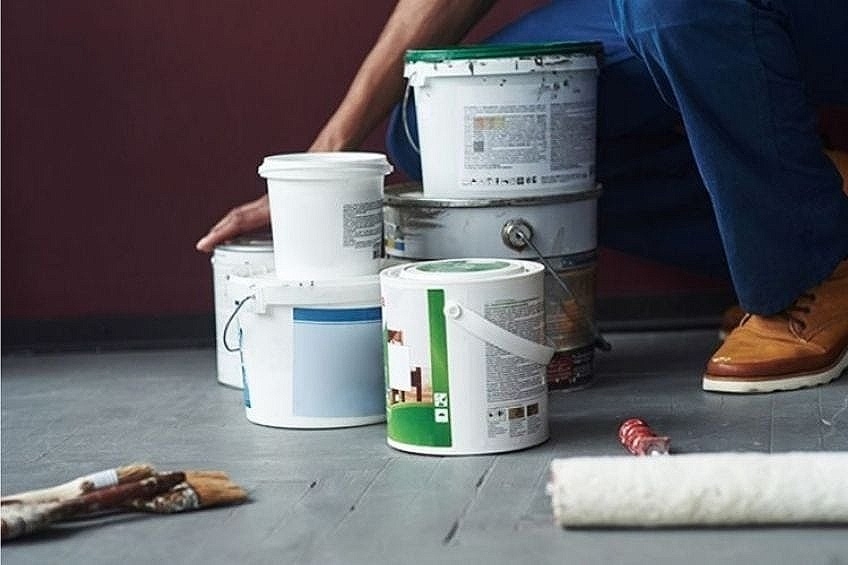
Why Apply a Concrete Sealant?
A cement sealer has many benefits and can be applied to new concrete surfaces just installed, or it can be used on older and damaged concrete surfaces. Some of the benefits of using the best concrete sealer include:
- Concrete surfaces that have been sealed are easier to clean and maintain.
- You can improve the appearance of the concrete surface.
- They allow for increased durability of a concrete surface.
- Details, colored concrete, and exposed aggregate can be protected better.
- You have a choice of color and finishes to fit in with your particular project.
- Cement sealer helps to protect from damage caused by chemicals, moisture, and stains, thus enhancing the strength of the concrete surface and helping to avoid general wear and tear.
Best Concrete Sealer
Choosing the right concrete sealer is an important decision in the final step of creating your concrete project. You do not want to just randomly select a product for the job, as this could ruin the outcome. The cement sealer is what you see and feel once the job is done, so it needs to be done properly.
Your choice is subject to the type of surface and how you want it to look in the end. Looking at concrete sealer reviews can also help you make a decision. To shorten this process, we have selected a few of the more popular concrete sealer products for you.
Best Concrete Sealer Overall: DRY-TREAT Impregnating Sealer
The Dry-Treat Sealer is a super-penetrating sealer with permanent bonding technology, offering long-lasting protection. The breathable formula helps moisture escape, thereby preventing the accumulation of moisture within the concrete. The coating also provides protection against stains, dissolved salts, and water.
This is a penetrating concrete sealer and can be used on all kinds of surfaces from concrete to tiles, natural stone, brick, grout, and pavers. This sealer can also be used on surfaces indoors as well as outdoors. The concrete sealer reviews for this product are mostly positive, all praising its ease of use, superior protection, and a terrific finish.
- Permanent bonding technology
- Reinforced protection against stains and damage
- Breathable and versatile
Pros
- Easy to use with little maintenance and reapplication required
- Excellent solvent-based concrete sealer
- Permanent bonding technology
- Penetrates deep into the concrete
- Can be used on different types of surfaces
- Stain-proof
Cons
- Oil may cause stains; however, the oil would need to stay on the surface for a long time for this to happen
- Expensive
Best Concrete Sealer for Countertops: ROCKLINITE LABS Tuff Duck Countertop Sealer
The Tuff Duck Countertop Sealer is a water-based concrete sealer that is completely VOC (Volatile Organic Compounds) free and is, therefore, non-toxic and safe to use around food. The final results are a satin finish that penetrates the concrete effectively, helping to prevent the absorption of water. Not only does it sink deep into the concrete, but it also provides a strong coat that covers and protects the concrete surface from liquids, stains, and scratches.
- Satin finish sealer covers 45 to 60 square feet per 750ml bottle
- Water-based formula is food safe, non-toxic, and has no VOCs
- Penetrates deep into the concrete while leaving a durable shell on the surface
Pros
- The protection it offers is long-lasting
- Results in a smooth and shiny finish
- Easy to use keep clean
- Safe to use and non-toxic
- Penetrates deep into the concrete for better protection
Cons
- You will need to apply multiple layers
Best Versatile Concrete Sealer: ECO ADVANCE Concrete/Masonry Siloxane Water Proofer
The Eco Advance Water Proofer is a commercial-grade product that can be used on a variety of surfaces. The product makes the perfect concrete driveway sealer and can also be applied to stucco, brick, pavers, and lots more. The result is a breathable coating that looks beautiful and is waterproof.
This is an eco-friendly option concrete sealer that is low in VOC (Volatile Organic Compounds) and also low in odor. This makes it good to use on both indoor and outdoor surfaces. The sealer dries quickly, and you can walk on it in only two hours. This sealer comes in a five-gallon container and can be sprayed on with a garden sprayer.
- Protects against water, oil, stains, mold, mildew, salts, and more
- Water-based, non-toxic, non-flammable formula
- Does not harm landscape plantings
Pros
- Eco-friendly
- Can be safely used around plants
- Low Odor and VOC
- Easy to apply and maintain
- Dries to a clear finish
- Can be used on a variety of surfaces
Cons
- Can be expensive
Best Affordable Concrete Sealer: ESSENTIAL VALUES Concrete Sealer
The Essential Values Concrete Sealant is an excellent and effective choice that offers both quality and affordability. Works great as a concrete driveway sealer but can also be used on other surfaces both inside and outdoors. The sealer can be applied to bricks, pavers, fireplaces, sidewalks, and lots more.
The sealer is moisture-resistant and helps protect the surface from pitting, cracking, spalling, and degrading. The eco-friendly formula dries to a clear, glossy finish that covers around 1500 square feet. Application is easy and you are left with a beautiful finish that will protect your concrete surface and keep it in excellent condition.
Pros
- Offers good coverage
- Eco-friendly
- Effective protective finish
- Can be used on different surfaces
- Affordable
Cons
- You will need to apply multiple layers
Should All Concrete Be Sealed?
Cement sealer offers great protection and can work effectively on countertops, driveways, and other surfaces that require sealing. But you do not have to apply to every concrete surface. Even though there are many types of concrete sealants available, you only need to apply them to surfaces that need them. Concrete is hard and durable and where it comes to a surface that is not used often, you do not require a sealant coat. For example:
- Vertical surfaces like walls or pillars
- Sculptures or other non-functional surfaces
- Any concrete surface that you do not use often or come into contact often with
Concrete floors and driveways are good examples of surfaces that need a sealant for added protection. Things like countertops and furniture are also used a lot and need extra protection. Concrete sealants not only provide protection but also improves the look of the surface.
When choosing your cement sealer, consider what you want it to look like once done. Do you want more protection, and you are not worried about what it will look like? A deep penetrating sealant that offers excellent protection is what you are looking for. The topical sealants cover and offer protection, but also come in different sheens and finishes for a better look.
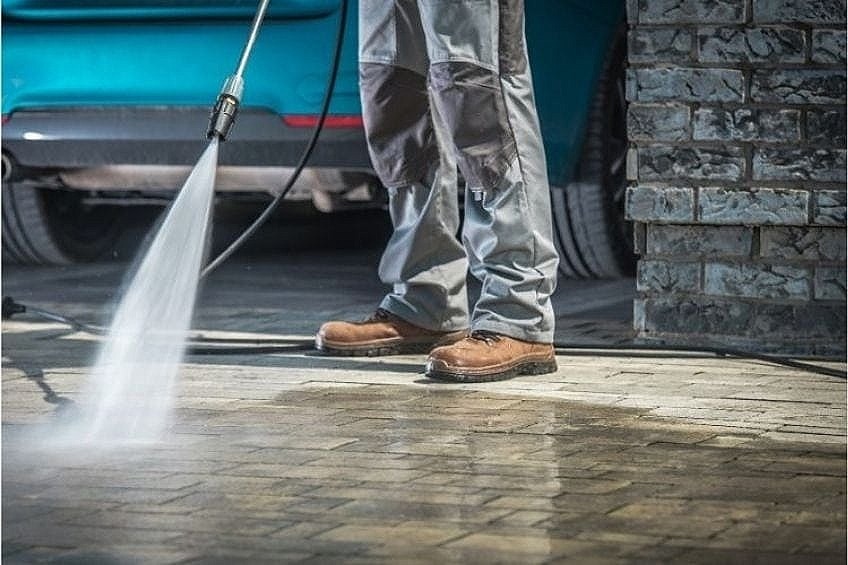
Choosing the Best Concrete Sealer
There are so many products available that choosing the right one may be difficult. The main thing to consider when out shopping, is the requirements of your particular job. You need to think about the following when deciding on the best concrete sealer.
Water-Based vs. Solvent-Based Concrete Sealer
This is an important consideration, as the solvent-based concrete sealer will dry to a glossy finish and also improves the look of the concrete underneath. This type of sealant also provides excellent durability and adhesion and will last a long time. Unfortunately, they also give off odors and are not environmentally friendly. They also have high VOC (Volatile Organic Compounds) levels.
Water-based concrete sealants are a lot eco-friendlier and have less odor and VOC emissions. They are safe to work with and can be applied to surfaces like kitchen countertops. Water-based sealants are also non-flammable and easy to clean up, and they dry to a more matte finish.
Permeation
We have already discovered that there are two main sealers, one that permeates the surface and others that cover the surface. The deep penetrating cement sealers offer more strength and protection from moisture and work best in areas where there is high traffic and outside. A solvent-based concrete sealer is also great as a stamped concrete sealer.
Some may want a sealer that offers a more aesthetic appeal, this is where the acrylic sealers come in handy. These sealants are also best used indoors, as they are less toxic than solvent-based sealers.
Concrete Sealant Maintenance
Most cement sealers are long-lasting; however, they do need to be reapplied now and again. Those in high traffic areas should last at least a few years before it needs to be reapplied. The better-quality concrete sealants are more expensive and should last longer. Always have a look at the product you wish to purchase to check out the details to see if this is what you are looking for. Resealing a concrete surface can be a difficult and costly job, so it is important to get the correct product.
Consider the Climate
Moisture and salt are two major problems that can cause damage to concrete. Moisture soaks into the concrete and can cause cracks when it freezes and thaws out. Salt, on the other hand, can corrode the concrete surface. The salt can be from ocean spray, chemicals, and other sources. If these are problems in your area, it is best to use a deep penetrating concrete sealer.
Concrete Finish
You have a variety of cement sealer finishes; each affects the look and level of protection provided. You need to select the sealant that fits your needs. For example, an exterior application needs UV protection to inhibit any yellowing. An outdoor concrete surface also needs something water-resistant and durable. In many cases, you might also want something that is anti-slip, especially when the surface is wet.
You can choose a deep penetrating concrete sealer that provides protection but does not change the surface look. Otherwise, an acrylic concrete sealer can help to enhance the look and provide protection. These come in a variety of sheens, providing high gloss concrete sealers to matte options.
When it comes to indoor concrete surfaces, you do not need UV protection. However, you still need the sealer to be water-resistant and durable. Kitchen countertops can do with a polyurethane or epoxy finish, while floors can have an acrylic finish. Depending on what look you are going for, you can again choose a high-gloss or matte finish.
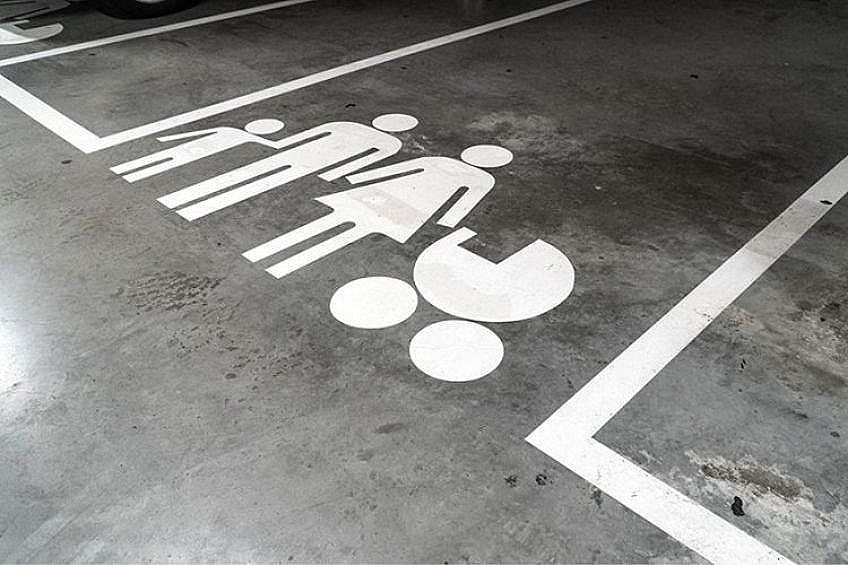
Cement Sealer Application
Once you have purchased the correct concrete sealant for your project, next comes the job of applying the sealer. The application of sealer is different between brands and products, however, there are a few general directions you can use on all of them.
Prepare the Surface
When applying any type of coating, including sealers, you should make sure the surface is clean and free from any dirt, dust, or stains. If there is an existing sealant layer, this will have to be removed. Read the product directions and follow them as directed. Some concrete sealers can be applied to wet and dry surfaces, and others can only be applied to dry surfaces.
Applying an Etching Solution
To get the best outcome, especially when using the penetrating concrete sealer, first apply an etching solution. This helps to prepare the surface even more by opening it up and allowing for better penetration of the sealer.
Applying Cement Sealer
There are various options, so again make sure to read the product instructions. The method of application depends on the kind of cement sealer you use. Methods of applications include:
- Spraying the concrete sealant on
- Applying with a brush
- Using a paint roller
When applying, have everything ready before you begin. Begin with applying an even thin first layer and let this dry. Apply another layer after the first one has dried, apply in the opposite direction to the first layer. Allow the second layer to dry thoroughly. Two coats of concrete sealant might be enough, or you might need to apply more depending on the type of sealer and the finish you want.
Drying Time
Most cement sealers need to dry properly before you can walk on them. Drying times depend on the sealer product used and can take up to 48 hours to dry thoroughly. However, many sealers will dry faster than this.
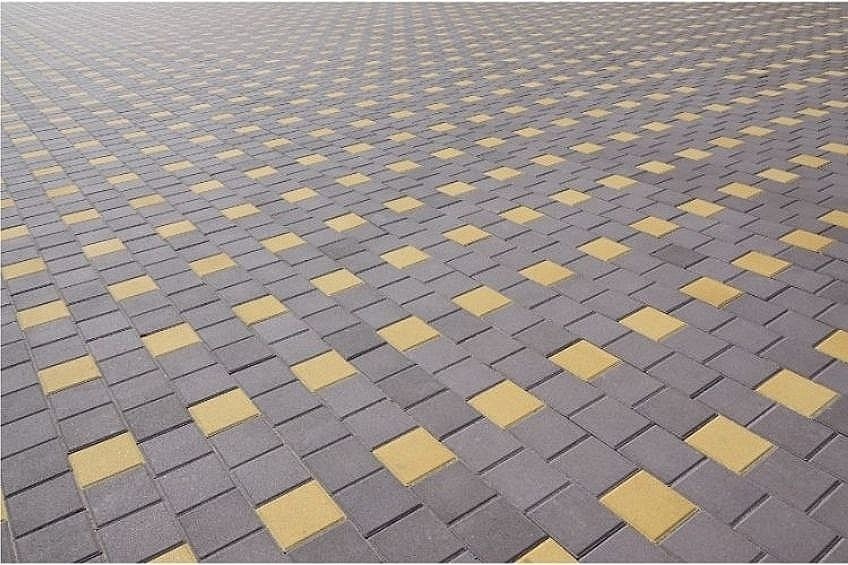
Frequently Asked Questions
Can You Apply a New Sealer Coat Over an Old Coat?
No, if you have an existing sealer coat, this should be removed before applying a new coat. The concrete sealant needs to be applied to bare concrete for it to work correctly.
How to Select the Correct Cement Sealer?
This is subject to the surface you want to seal. Do you want to apply to a surface indoors or outdoors? Outdoor floors do better with a penetrating concrete sealer, while water-based cement sealers are best used indoors. Polyurethane or epoxy sealers are best used on surfaces like countertops.
How Do You Apply Cement Sealer?
Depending on the product, you can apply cement sealer using a sprayer, brush, or roller. A sprayer or roller tends to provide better results. For a nice even and smooth application, use a professional paint sprayer.
Does Cement Sealer Last Long?
Depending on the sealant, it should last many years. In general, a sealant can last anything from 5 years up to 10 years. Some sealants can even last up to 25 years.
When deciding on what product to choose, it is always a good idea to go for the best concrete sealer for your project. This will ensure you apply for maximum protection and will have a long-lasting product that looks great as well. We hope this article has given you enough information to go out and make the right choices so that you will be more than satisfied with the results.
Larissa Meyer is a 32-year-old mother from Michigan and creative spirit since childhood. Her passion for painting and drawing has led her to an education as an illustrator and a career as a freelance graphic designer. She has a Bachelor of Fine Arts in Illustration and a degree in Graphic Design. Larissa is a talented artist who is able to master a wide range of styles and techniques to bring her artistic vision to life. Her greatest passion is currently fluid painting and epoxy resin art. Larissa’s love for art and her knowledge and experience in illustration make her the perfect Creative Director for our fluid-painting.com team. She is the creative head of our team and shares her passion and knowledge with our community through articles and tutorials.
As a mother of a 2-year-old daughter, Larissa also understands the importance of fostering creativity in early childhood. She uses her experience and knowledge to help other parents inspire their children and develop their artistic skills as well.
Learn more about Larissa Meyer and about us.
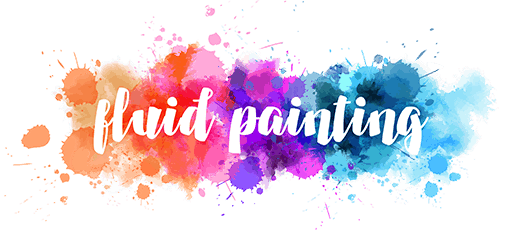






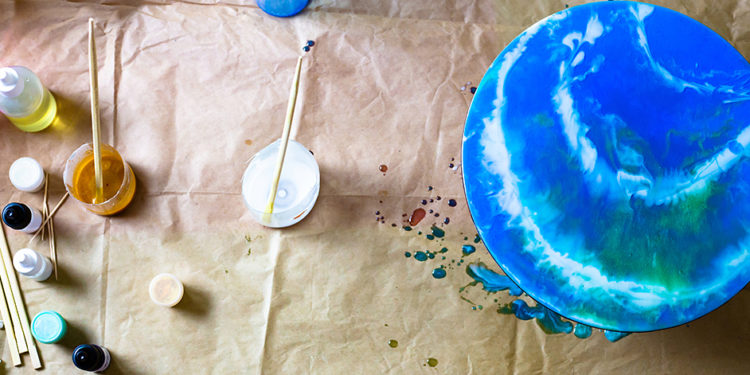
![Resin Color and Dye – How to Color Resin [Guide]](https://fluid-painting.com/wp-content/uploads/2020/04/resin-color.jpg)
